Difficulties are also identified to quickly find solutions to ensure smooth operation of educational management throughout the system.
Mr. Uong Minh Long - Deputy Director of Hai Phong Department of Education and Training: Timely promote decentralization and delegation of power in sync with the implementation of two-level local government
The Department of Education and Training of Hai Phong proposed that the Ministry of Education and Training provide guidance on decentralization of management of management officials at kindergartens, primary schools, and secondary schools under the People's Committees at the commune level - the provisions of the Law on Teachers and decrees on decentralization of authority and appointment belong to the Department of Education and Training, but the organizational structure is under the management of the People's Committees at the commune level. Provide early training on the contents of in-depth decentralization of education management for effective implementation before the new school year. Promptly issue documents guiding the new school year to help localities take the initiative in organizing and implementing tasks for the 2025-2026 school year. - Mr. Uong Minh Long
Based on the decrees, circulars, and guiding documents on decentralization and delegation of authority in education management of the Central Government and the city, the Department of Education and Training of Hai Phong proactively deploys work contents to meet the requirements of operating the administrative apparatus according to the two-level local government model after the merger, ensuring continuity, stability and not interrupting state management activities in the field of education.
Specifically, the Department of Education and Training implements the Government's decrees on the content of the division of authority of two-level local authorities; decentralization and delegation in the field of state management of the Ministry of Education and Training to departments, branches, sectors and commune-level People's Committees. Guides educational units and institutions in handling situations arising in the process of converting management models, especially the appointment and reappointment of management officials at educational institutions.
Discuss with the Department of Home Affairs about some difficulties and problems in appointing managers of public service units under the People's Committees at the commune level. Submit to the City People's Committee the task of drafting legal documents (according to the simplified procedure) regulating some contents on decentralization, delegation of authority, and authorization under the authority of the Department of Education and Training.
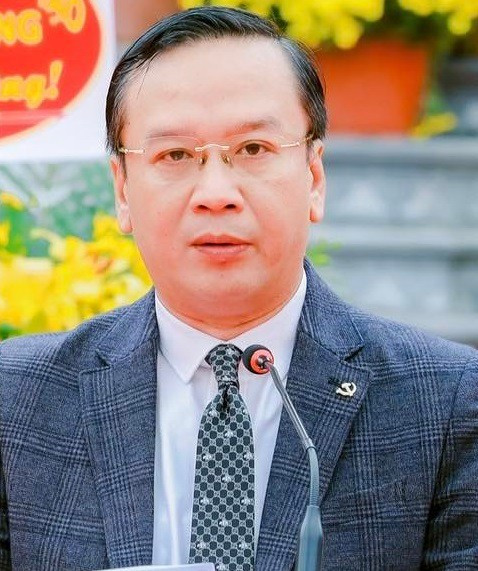
After the merger, Hai Phong has reviewed and re-evaluated the quantity and quality of cadres and civil servants to reduce those who are not qualified and do not meet the requirements of the task. For cadres and civil servants in education management who are qualified and capable, the localities have re-arranged and reassigned them to suitable positions, ensuring that they meet the requirements of the task of the new administrative unit.
The Department of Education and Training has consulted with the City People's Committee and the Department of Home Affairs to arrange and assign human resources to monitor education, with at least one officer with education expertise transferred from the Department of Education and Training of districts to the Department of Culture and Society under the People's Committee of the commune, in charge of the education sector. However, currently, Hai Phong has 114 communes, wards and special zones that have assigned 114 officers in charge of education, but of which only 68/114 people have expertise in education (accounting for 59.6%).
It can be said that, in terms of the results achieved, the Department of Education and Training has focused on reviewing the entire system of legal documents related to education, advising the City People's Committee to issue legal documents within its authority to promptly adjust and promote decentralization and delegation of power in line with the implementation of the two-level local government model, creating a legal corridor to promptly handle practical issues related to education. The two-level government model has initially received high consensus from the people, assessed as suitable to reality, contributing to improving the effectiveness and efficiency of state management, and improving the quality of service to the people.
In the coming time, the Department of Education and Training will continue to thoroughly grasp and promote the propaganda and communication of the contents of the decrees on the division of authority, decentralization, and delegation in the field of education and training; guide the People's Committees at the commune level to organize the implementation of tasks and powers that are assigned authority, decentralization, delegation, or authorization in the field of education and training.
Issue directive documents, review, synthesize, compile statistics, analyze, grasp and forecast the situation to prepare for the 2025-2026 school year plan. Continue to maintain hotlines, support units, and working groups to receive information and provide guidance on removing difficulties and obstacles in the process of implementing two-level government.
Continue to advise: Recruiting the remaining teachers at all levels to carry out the tasks of the 2025-2026 school year; implementing policies for promoted teachers; resolving civil servants, public employees, and workers according to Decree No. 178/2024/ND-CP and Decree No. 67/2025/ND-CP. At the same time, develop a training plan for the team of commune-level officials in charge of education who do not have education expertise, ensuring the effective operation of the two-level local government model in the field of education management.
Mr. Bach Dang Khoa - Deputy Director of the Department of Education and Training of Bac Ninh: Ensuring smooth operation in educational management
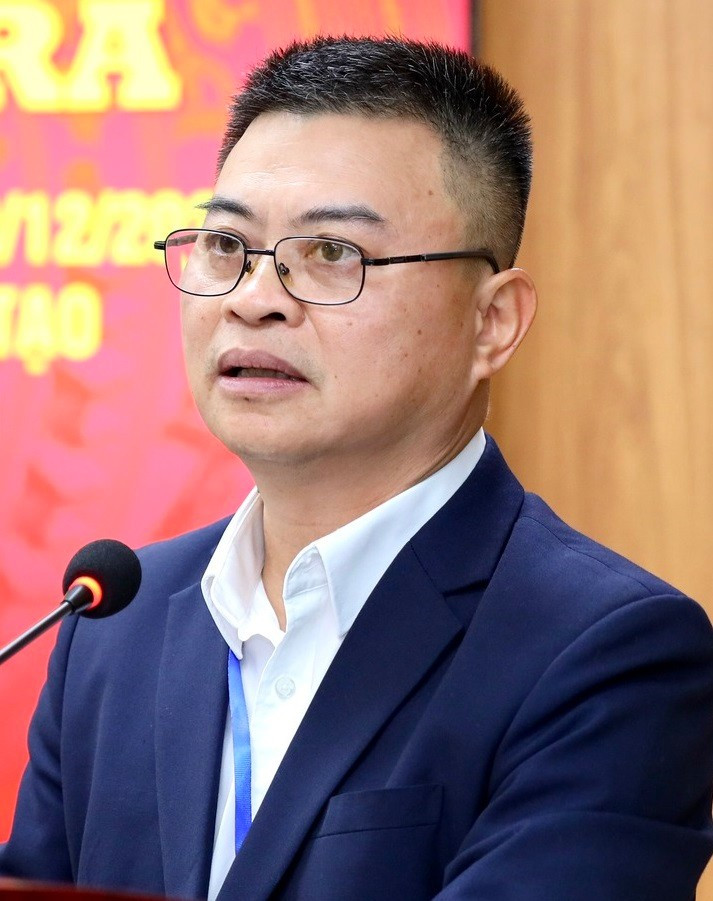
After implementing the two-level local government model, state management of education in Bac Ninh province has achieved a number of important results. Accordingly, ensuring smooth operation in education management; promoting digital transformation in education administration; reviewing and re-planning the school network in accordance with residential conditions...
The province has completed the arrangement of one full-time officer to monitor the education sector at 100% of the commune-level People's Committees. In the coming time, the Department of Education and Training will organize training on coordination skills, grasping school activities, contributing to improving the effectiveness of management at the grassroots level for this team. Regarding management, inspection, and supervision, the Department of Education and Training will develop an inter-sectoral inspection plan on school safety, two-session teaching/day, national standards... organized periodically and assigning responsibility to commune-level authorities in monitoring and handling arising situations...
However, the implementation practice shows that there are still many difficulties. In particular, the current legal system is not synchronized with the practical conditions of organizing the two-level model, so in the implementation process there are still many overlaps in authority, leading to difficulties in decentralization and delegation of power at both provincial and communal levels, especially in the field of personnel organization.
The abolition of the Department of Education and Training has led to a lack of intermediary forces to support the work of directing, inspecting professional expertise, and training teachers at the district level. Difficulties in arranging personnel for professional management and operation at the grassroots level when the workload increases but the apparatus does not expand accordingly...
Currently, the Department of Education and Training has to directly manage more than 1,200 schools, causing great pressure without an intermediate professional support force. To effectively manage professional activities in the new situation, it is necessary to build a provincial-level Core Teachers Group to help the department in carrying out the school year's tasks and support professional work for schools. The lack of a document clearly stipulating the organizational structure, tasks, criteria and especially the regime for this force, causes difficulties in implementation at the local level.
Regarding tasks and solutions, the Department of Education and Training will perfect the coordination mechanism with the People's Committees at the commune level in managing educational institutions, especially in inspection, examination, and handling of administrative violations. Regularly train education officers at the commune level, focusing on administrative management content, coordinating the implementation of educational policies, and mass mobilization in schools.
The study proposes a model of intermediary professional support, piloting school clusters by area to reduce the burden on the Department of Education and Training in directing and operating. Promote digital transformation in education administration, use synchronous electronic platforms from province to commune; deploy a dashboard system to monitor real-time data on students, teachers, facilities, etc.
Focus on investing in disadvantaged areas, prioritizing resources to build standard schools, improve facilities and recruit teachers for areas with rapidly growing populations. Build a team of teachers with sufficient numbers, consistent structure, standard training levels, enthusiasm, responsibility and love for the profession...
The Department of Education and Training requests the Ministry of Education and Training to submit to the Government for early promulgation of specific regulations on decentralization and delegation of authority in the field of education in accordance with the two-level government model, ensuring the initiative of the Department of Education and Training in organizing and implementing educational tasks. Issue a circular guiding the organization and operation mechanism of the provincial-level Core Teachers' Group, clearly defining the standards, tasks and support policies.
Coordinate with the Ministry of Home Affairs and the Ministry of Finance to guide the implementation of payment for teaching hours exceeding the prescribed standards, meeting the requirements of the 2018 General Education Program. Propose that the Provincial People's Council and People's Committee promptly issue resolutions, projects, programs, and plans to promptly apply institutions and policies on education and training in the new school year 2025 - 2026.
Regarding investment in resources, digital data, and school network planning: It is recommended to prioritize funding support to enhance the management capacity of the Department of Education and Training when there is no longer an intermediate management level. Review and guide the adjustment of school network planning to suit the actual population size after the merger.
Research, develop and promulgate a national shared digital platform in education management, fully integrating professional functions, digital records, training and supervision, ensuring seamless connection from the Ministry of Education and Training to the Department of Education and Training and educational institutions for the most effective management.
Mr. Ta Hong Luu - Deputy Director in charge of Thanh Hoa Department of Education and Training: Solving difficulties, ensuring smoothness, effectiveness and efficiency from province to commune
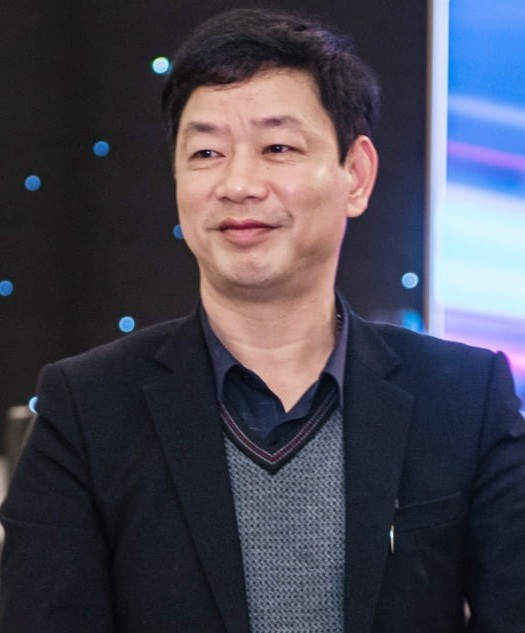
In the 2025 - 2026 school year, Thanh Hoa province is expected to have 2,002 educational institutions, with a total of 30,152 classes and about 966,190 children/students/trainees. By the end of the 2024 - 2025 school year (June 2025), the entire Thanh Hoa Education sector will have a total of 57,086 school administrators, teachers and staff; of which, public educational institutions will have 53,966 people and non-public educational institutions will have 3,120 people.
Thanh Hoa Education Department has proactively and promptly guided the implementation of state management tasks on education before and after implementing the two-level local government; guided the People's Committees at the commune level to develop a project to establish and receive educational institutions transferred from the district level, and carried out an assessment of the current educational situation in the management area, thereby proposing solutions for local educational development.
The Department of Education and Training has advised the Provincial People's Committee to establish vocational colleges and vocational education and continuing education centers under the Department on the basis of reorganizing vocational colleges and vocational education and continuing education centers under the People's Committees of districts, towns and cities.
Accordingly, 23 vocational education and continuing education centers and 3 district-level public secondary vocational schools were transferred to the Department of Education and Training for management. Zalo management groups were established by level of education and each management field to carry out tasks urgently, promptly and smoothly from the Department of Education and Training to the People's Committees at the commune level and educational institutions.
Assigning the People's Committee at the commune level to manage kindergartens, primary schools, secondary schools, and general schools with multiple levels, with the highest level being secondary schools, helps increase flexibility and efficiency in management. With a smaller management scale than the previous district level, the People's Committee at the commune level has the opportunity to have closer access to local educational activities, thereby helping schools quickly handle issues related to organization, personnel, or facilities.
If provided with sufficient human resources, management tools and means, the commune-level government can fully support schools in mobilizing students to attend class, ensuring school safety, connecting schools with the community, and promptly handling problems arising during operations.
Direct direction from the Department of Education and Training to educational institutions through information technology infrastructure ensures speed, timeliness and accuracy, thereby contributing to improving the effectiveness and efficiency of educational management. The implementation of legal documents on vocational education is still implemented according to documents issued before the implementation of the two-level government. This is convenient for schools and centers to continue to carry out assigned tasks and powers, without causing disruption in the management and operation of the Department of Education and Training as well as its affiliated units.
Besides the above advantages, the province has a large number of educational institutions, which may lead to some difficulties in directing and guiding the implementation of professional work because it may not be possible to directly supervise all schools in the province during the school year.
The commune level receives a large volume of tasks from the district level, so the initial stage of operation may cause staff overload. Meanwhile, some commune-level officials and civil servants do not have enough professional capacity and experience in state management in the field of education, especially complex issues such as financial management, capital construction investment, planning, teacher personnel management, etc.
Recognizing advantages and difficulties, in the coming time, the Department of Education and Training will continue to direct the implementation of tasks according to decentralization and delegation of authority to ensure that they are close to reality, suitable to the functions, tasks and actual situation of the locality. Strengthen the direction of educational management staff, the role and responsibility of the head of educational institutions.
Strengthen coordination between specialized departments of the Department of Education and Training, coordination between the Education sector and other sectors in advising and implementing tasks. Continue to advise on the implementation of legal documents to ensure compliance with regulations, promptly guide units to resolve difficulties and problems to ensure smooth, effective and efficient communication from the province to the commune.
Review to propose competent authorities to supplement and amend the system of legal documents related to education management, ensuring compliance with the two-level model; provide training to improve the capacity of commune-level officials; invest in upgrading information technology infrastructure; and synchronously implement digital transformation at all levels and sectors.
Mr. Le Quang Tri - Director of Dong Thap Department of Education and Training: Review the team to assign appropriate tasks, avoid overlapping and missing tasks
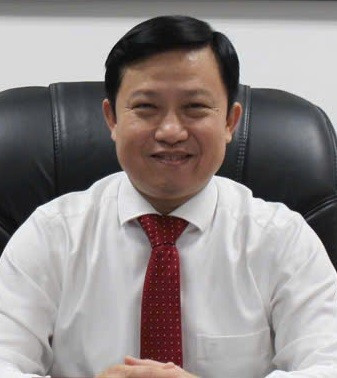
Up to now, the Department of Education and Training of Dong Thap has completed the consultation on decentralization, delegation of authority and working regulations of units under and directly under the Department and People's Committees of communes and wards. It has completed the reception, assignment and appointment of management staff for educational institutions.
Conduct a review of the teaching staff and transfer and mobilize teachers to prepare for the 2025-2026 school year. Conduct an inspection of facilities at units under the Department to prepare for the 2025-2026 school year.
It can be said that the merger helps reduce the number of schools and departments; thereby, reducing the number of managers and employees, concentrating resources, streamlining the apparatus to help improve the operational efficiency of the Department of Education and Training, schools, especially in the management, operation and implementation of educational activities.
Mergers also help localities have better investment resources for disadvantaged schools. At the same time, it creates conditions for arranging teachers with appropriate expertise for each grade level; teachers have more opportunities to learn and exchange experiences, thereby improving their professional qualifications.
Besides the advantages, after the merger, the commune and ward authorities were assigned additional tasks of education management, but most of the officials did not have in-depth expertise in education, so they were still confused in management work, especially in the context of innovation in education management and digital transformation.
Regarding the direction, tasks and solutions, the Department of Education and Training will complete the organizational structure after the merger, rationally arrange specialized departments, centers, and affiliated secondary schools. Review and re-evaluate the staff, civil servants, and public employees to assign and mobilize appropriately, avoiding overlapping or missing tasks.
The Department of Education and Training will coordinate with the Department of Home Affairs to advise the Provincial People's Committee to direct communes and wards to review and arrange sufficient staff in charge of education; at the same time, the Department of Education and Training will conduct training for the team in charge of education in communes and wards. Along with that, it will conduct inspections of facilities and other conditions in units under the Department to prepare for the 2025-2026 school year.
Regarding proposals and recommendations, the Department of Education and Training hopes that the Ministry of Education and Training will consider submitting to the Government amendments and supplements to Decree No. 142/2025/ND-CP dated June 12, 2025 of the Government regulating the division of authority of two-level local authorities in the field of state management of the Ministry of Education and Training according to the Law on Organization of Local Government dated June 16, 2025.
Before implementing the two-level local government, each commune, ward, and town had a community learning center. Currently, there are legal documents on decentralization, delegation of authority, and implementation guidelines, but in the actual implementation process, there are still problems, overlaps, or "gaps" in the specific division of authority between the provincial and communal levels, especially related to complex issues such as appointment and rotation of teachers, management of public assets, etc. - Mr. Ta Hong Luu
Source: https://giaoducthoidai.vn/mo-hinh-chinh-quyen-dia-phuong-2-cap-bao-dam-quan-ly-giao-duc-thong-suot-hieu-luc-hieu-qua-post745160.html






![[Photo] Solemn opening of the 1st Government Party Congress](https://vphoto.vietnam.vn/thumb/1200x675/vietnam/resource/IMAGE/2025/10/13/1760337945186_ndo_br_img-0787-jpg.webp)





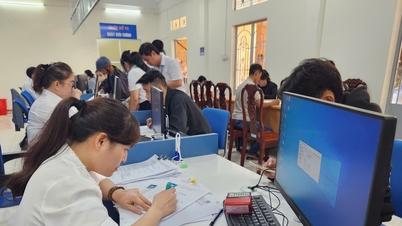

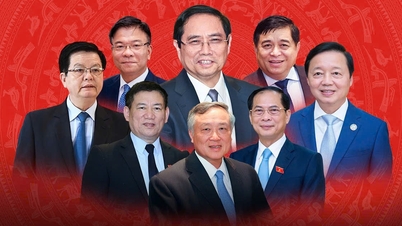

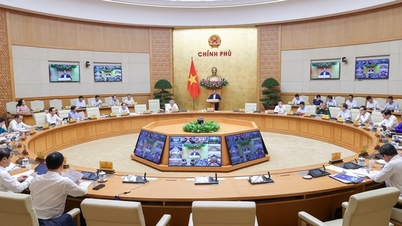
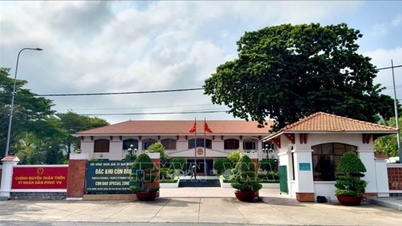





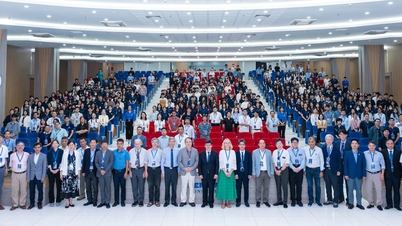
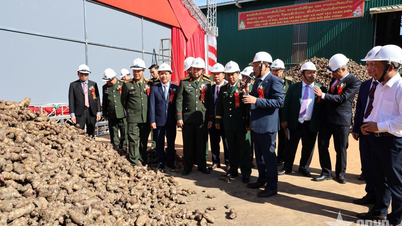

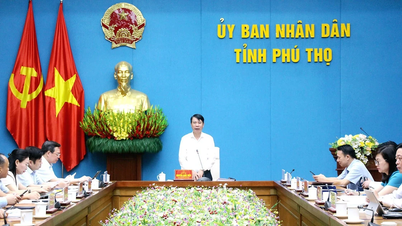






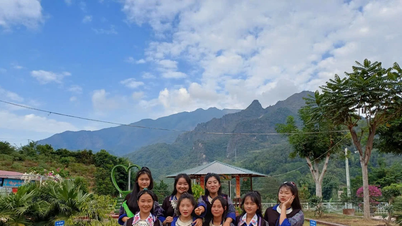

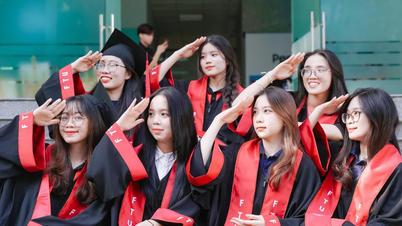
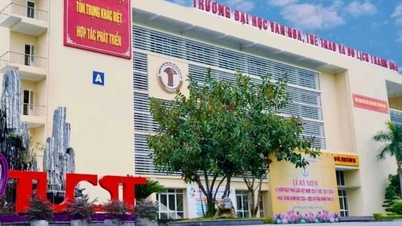
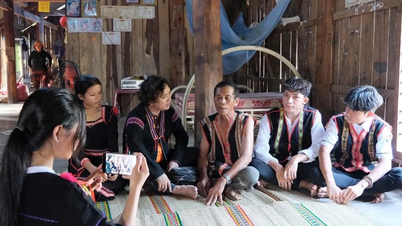
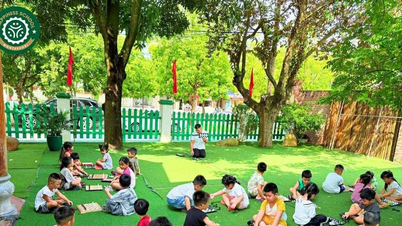
![[Photo] General Secretary To Lam attends the opening of the 1st Government Party Congress](https://vphoto.vietnam.vn/thumb/1200x675/vietnam/resource/IMAGE/2025/10/13/1760321055249_ndo_br_cover-9284-jpg.webp)

























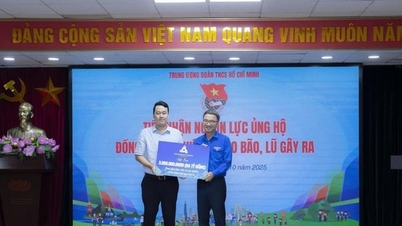

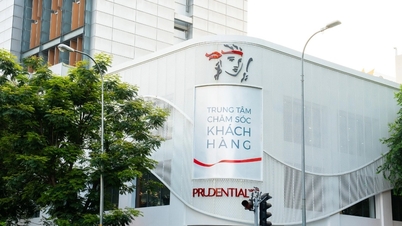
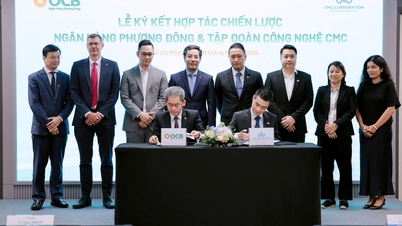












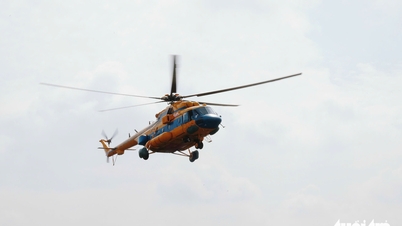


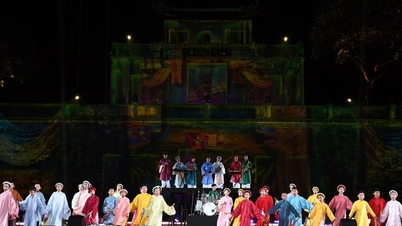
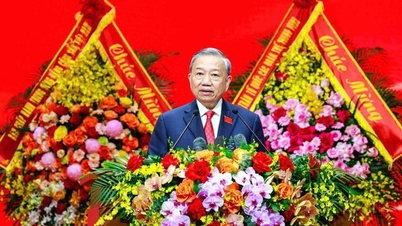

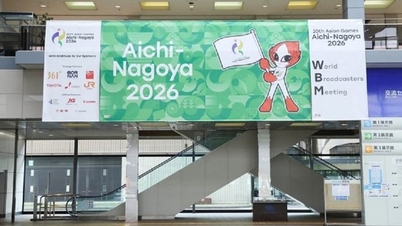


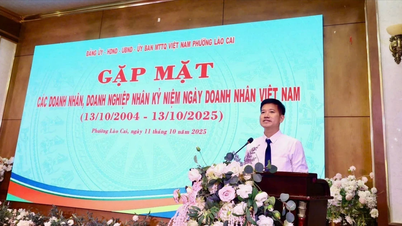
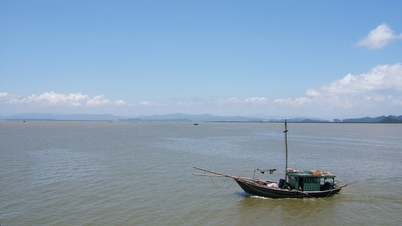

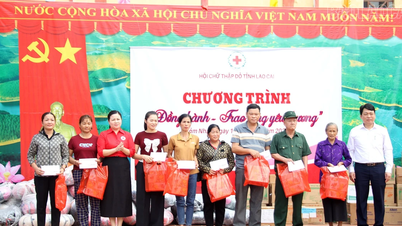


















Comment (0)